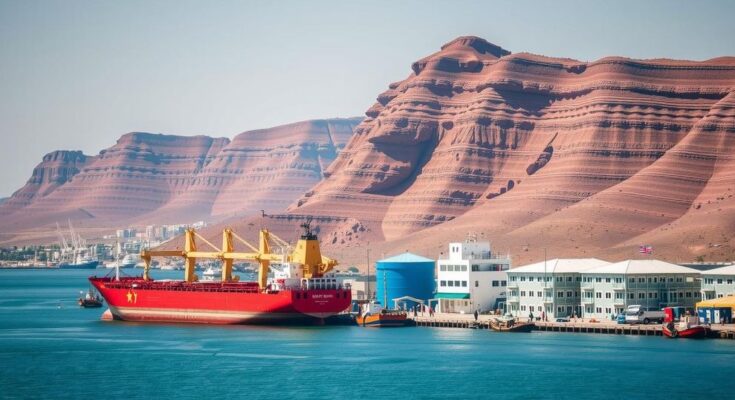China has invested heavily in Djibouti, recognizing its strategic significance in East Africa under the Belt and Road Initiative. However, concerns arise about the Red Sea crisis affecting Chinese businesses due to Djibouti’s limited manufacturing and heavy reliance on imports. The acquisition of a salt company highlights Chinese efforts to leverage local resources. The future remains uncertain as geopolitical tensions escalate.
China has significantly invested in Djibouti, viewing the nation as a strategic hub within the East African market, particularly under its Belt and Road Initiative. Chinese businesses have actively engaged in a range of sectors, including transportation and infrastructure development, capitalizing on Djibouti’s vital geographical position. However, concerns arise that ongoing tensions in the Red Sea may pose challenges to these enterprises, threatening their operational stability and growth potential in the region.
Djibouti offers limited manufacturing capabilities, an arid climate, and a complex landscape that can impede agricultural productivity, which constitutes merely 1 percent of its gross domestic product. Consequently, the country is heavily reliant on imports, rendering its economy vulnerable to external pressures. Djibouti’s unique geographic features include Lake Assal, the world’s largest salt reserve, though historically, this resource has been underexploited, limiting local development.
In a notable investment move, the China Communications Construction Company acquired a majority stake in a salt production facility previously owned by an American company in 2015. This strategic purchase led to the establishment of the Djibouti Salt Investment Company, marking a significant commitment by China to harness the potential of this valuable natural resource. As tensions escalate in the Red Sea, it remains to be seen how these developments will influence Chinese businesses operating in Djibouti-specific sectors.
The geopolitical landscape of Djibouti is shaped by its strategic location at the southern entrance to the Red Sea. This position has attracted considerable foreign investment, notably from China, which aims to expand its connectivity and trade routes across the region. Djibouti’s participation in the Belt and Road Initiative has heightened its visibility as a pivotal node for trade and logistics. However, the country faces inherent challenges, including its limited industrial base and environmental constraints, which necessitate reliance on foreign investments and imported goods to support its economy.
In conclusion, while China’s investments in Djibouti have fostered economic growth, the potential crisis in the Red Sea could hinder operations and expansion for Chinese businesses. The reliance on imports and the underutilization of natural resources like Lake Assal further complicate the outlook for sustained economic development. As the situation evolves, it will be imperative for stakeholders to navigate these challenges diligently and strategically.
Original Source: www.scmp.com




